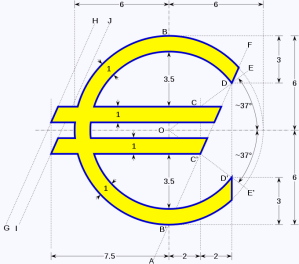16 September
2011
The European Crisis-Management Project
Posted in Ethics in Business, Europe, World Affairs
From a guest blogger:
Since its inception one of the principle reasons regularly served up for ever more integration in the European Union (as now is) has been, in the wake of two World Wars, to prevent armed conflict by making war ever more unattractive and impossible to conceive. As integration progressed, it was decided (the passive voice disguising a singular lack of vox populi in the whole procedure) that a single currency would serve to harmonise still further the interests of EU nations while at the same time making trade between them even freer. In such manner was the Euro born, and thereafter it grew in strength and the nations prospered.
This prosperity, however, also served to disguise inequalities in the Eurozone. Some countries were admitted to the single currency when, by any criteria of common sense and human measure, they should not have been. Then, in 2008, quite unexpectedly, the developed economies of the world began to slip ineluctably into recession. Those worst hit included Ireland, Portugal, Spain and of course, Greece. Indeed, the Greek crisis has become the litmus test for how other nations in Europe will fare in the face of the starkest of Sovereign Debt Crises. By far the strongest economy in the Eurozone, and in Europe as a whole, is that of Germany which has borne the brunt of the cost of bailing out Greece, much to the chagrin of its citizens who have, as ever in such matters, not been consulted. In the United Kingdom the large body of those sceptical about the Euro project wonder whether it will be Greece or Germany who will leave the Euro first, all the while chortling in a self-congratulatory manner that our decision not to enter the Euro was definitely the right one.
The problem is, of course, that if the Euro goes under no one, except perhaps some market speculators, will be the better off. It will be better for almost everyone in Europe if the Euro is saved. The real question is whether Germany wants this enough to carry Greece’s debt, and perhaps the debts of other nations.
Taking the long view one might well conclude that Germany ought to take this on. So cataclysmic was the damage inflicted on Europe by the Nazi regime that a wholly new kind of governmental apparatus for the continent had, many felt, to be implemented. This was to be a voluntary kind of empire in which countries paid their annual tithes in order to participate in free cross-border movement, in freedom to work abroad and in the ability to trade in the largest market on the planet. This project of integration can perhaps be credited with preserving peace in Europe and it has to be allowed that the financial crisis is not as dire a disaster as war on a continental scale.
Herman van Rompuy declared last year that Euroscepticism leads to war. It might be argued on the other side that Europhilia has led to financial melt-down. Given the momentum of recent history, however, it may be that Germany will see no viable alternative to picking up the tab for the foreseeable future.
Related Posts:

Leave a Reply